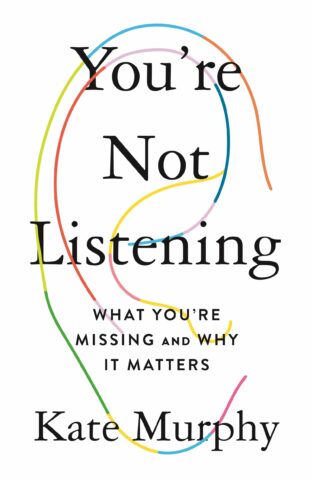The tricky, but necessary, art of listening
In our world of constant digital communication and networking, our ability to listen has never been so poor. Yet listening is what enables us to really connect with others in order to learn, understand, and cooperate.
Listening isn’t in fashion right now. It is considered gratuitous and time-consuming; it involves paying attention to someone else and putting personal interests on standby. These are the exact opposite of the qualities we feel are required to survive in our current, hyper-reactive environment, which demands immediate performance and intense self-promotion.
Because our brains are programmed to ensure our survival, stepping back in order to listen is not an option we rate highly. But, according to author Kate Murphy, the long-term benefits of listening are real: it improves discussions, boosts confidence, stimulates teamwork, and leads to better negotiations and human relations in a broad sense.

You’re not listening by Kate Murphy (Celadon Books, 2019)
Why won’t we listen?
Does listening seem difficult? That’s perfectly normal — our neurons aren’t wired for it. We think much faster than speech1, so our attention soon begins to wander when listening to someone else. This problem is exacerbated by new technology, whose constant demands have reduced our attention span to eight seconds. What’s more, with remote communication, we miss out on the essential, nonverbal signs needed for listening. Our cognitive biases muddy the waters even further. We think we can guess in advance what people we know are going to say (closeness-communication bias)2. But we also tend to prejudge what strangers are going to say because we judge them on their appearance (confirmation bias)3. The result in both cases is the same: before they have even opened their mouths, we overestimate what we know about others, we underestimate the risks of misunderstanding, and we listen badly. Furthermore, our reptilian brains generate stress when faced with someone else’s comments, considered potential threats. When it comes to someone supporting a point of view opposite of our own, it’s even worse; our amygdala goes into panic mode, seriously interfering with our ability to listen.4 Finally, our “inner voice” — negative or positive — always colors our perception of what the other person is saying. This element of subjectivity damages impartial listening.
© Copyright Business Digest - All rights reserved




